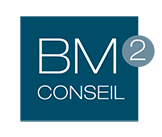Checking up on the account’s performance once a year is usually enough. If you have investments outside of your retirement accounts, you likely hold them in a brokerage account. If you’re actively trading, you’ll likely be in this account every day.

What to Evaluate When Checking Your Bank Account
Annually, a checking account holder pays about $475 on average as account fees. This can translate to a substantial amount when accumulated with other accounts held by the same person. Spotting these fees earlier through regular monitoring can help save some amount at the end of the year. Keep a close eye on your bank account activities because you can maximize the benefits offered by a checking account, prevent possible fraud or errors, and minimize account fees. By monitoring your accounts regularly, you can spot and react to unauthorized transactions quickly. Your budget may be based on estimates, but monitoring your checking account provides a better visual of how your actual money is earned and spent.
How often should you check your bank statement?
- Once you log in, you should be able to see your checking account information and bank statements.
- For instance, you could scan your account activity in the morning or at the end of the day to see which debit and credit transactions have posted.
- Keeping an eye on your checking account regularly can help you spot potentially fraudulent activity and prevent financial losses before they happen.
- Even if it’s just coins you throw into a bowl at the end of each day, every little bit helps.
- Now that online banking is ubiquitous, all you have to do in order to make sure you’re not overspending is log into your account and check your balance.
Financially savvy individuals have a savings account for when life goes south. Choose AFFCU’s VISA Platinum Rewards Credit Card for your spending needs. Get a low-rate while earning 1.5% Cash Back on every purchase, everyday. An increasing number of financial institutions such as Citizens Bank and Bank of America are providing mobile apps exclusively for their users.
Chicago Mortgages – Loan Rates & FAQs
Each transaction tells you how much money was debited or credited to your account and the vendor responsible for the transaction. Consider these pros and cons in relation to your financial needs and lifestyle to determine whether weekly monitoring is the right fit for you. If you have a relatively stable financial situation and prefer a less frequent check-in, weekly monitoring can strike a balance between staying informed and avoiding excessive monitoring. Managing your finances effectively requires careful monitoring of your checking account.
According to the Federal Trade Commission, immediately reporting a lost or stolen debit card will exclude you from responsibility for any fraudulent purchases on your account. Interest rates on these accounts can fluctuate daily, so check your account somewhere between once a month and once a quarter to ensure you’re earning a competitive rate. For most people, their checking account is the hub of their financial activities. With paychecks going in and bills going out, it’s crucial to keep on top of your checking account more than your other accounts.
Most of the time, a thief may make small test purchases after obtaining your debit card and will make larger purchases if the test is successful. If you’re putting money away for your child’s education in a 529 savings plan, you can set up automatic contributions to investments so you don’t have to constantly monitor the account. While the number of accounts can seem overwhelming, not all of these financial buckets deserve an equal amount of attention.
Once you do that, you’ll be able to log into your account dashboard to review your transaction history. So, take the necessary steps to stay vigilant and keep your checking account in check. Consider these pros and cons in relation to your financial situation and preferences to decide if daily monitoring is the right approach for you.
We do not assume consumer debt, make monthly payments to creditors or provide tax, bankruptcy, accounting or legal advice or credit repair services. Please contact a tax professional to discuss tax consequences how often should you typically monitor your checking account of settlement. Please consult with a bankruptcy attorney for more information on bankruptcy. Depending on your state, we may be available to recommend a local tax professional and/or bankruptcy attorney.
You can also track your balance, which can help you avoid putting your checking account into the red and racking up expensive overdraft fees. As of first half of 2021, the average banking customer pays $167 in checking account maintenance fees every year, excluding overdraft and ATM fees. That’s not exactly a fortune, but it’s a decent amount of money that you could add to your emergency savings fund or use to pay down debt each year.
There are several good reasons to keep a close eye on your banking activity, particularly if you’re concerned about preventing fraud or minimizing fees. If you’re just getting started with your first checking account—or you’re wondering whether your current banking habits could use some improvement—these tips can help. Money going into your accounts doesn’t need much monitoring, as in the case of retirement accounts. However, if you’re pulling money out frequently, it’s important to check regularly to ensure you don’t overdraft or that you maintain any required account minimum balance. Accessing your checking account a few times per week will help you avoid overdrafts, ensure your bills are paid on time, and help you monitor your transactions for fraudulent activity.

Laissez un commentaire